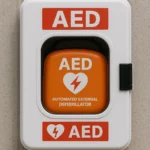
Smart Hospitals Enhancing Patient Safety with IoT Technology

Introduction to Smart Hospitals
The Internet of Things (IoT) is the main focus of hospital intelligence, which improves patient safety and operation efficiency. As technology develops and integrates into all spheres of life, it is also essential to see the vision it brings to our way of life.
Why It Matters
- Patient Safety First: Better monitoring in real-time is done by smart hospitals, which minimizes mistakes.
- Efficiency Gains: Speeding up decision-making means better treatment and resource management.
- Innovative Research Opportunities: The IoT, of course, generates the data needed for the further development of medical science. This trend has become one of the most important in today’s healthcare industry. It impacts physicians or researchers and contributes to patients’ empowerment. Transitioning into these changes involves improving health outcomes and supporting the healthcare model.
Understanding Smart Hospitals in Today’s Healthcare Landscape
A Shift Towards Innovation
Specially designed for the healthcare industry, the innovative hospital is known for adopting Internet of Things (IoT) technology, making it possible for patients to be cared for. Therefore, health safety and overall efficiency become the primary concerns of this movement.
- More data, better outcomes: IoT helps monitor real-time information, which adds to the vital data collected.
- Connected care: Wireless cooperation among the staff leads to quick treatment.
How Smart Hospitals Are Evolving
The advent of innovative technologies has transformed the way hospitals work:
- Automation: It is much easier for healthcare professionals to deal with non-urgent tasks by means of the automated mode, thereby making it possible for them to give the best attention to those who need it the most.
- Remote monitoring: Now, the elderly and patients with chronic diseases can be followed up from outside a hospital and continue with their treatment.
Impact on Medicine and Public Health
This breakthrough, thus, dramatically alters the splintered face of healthcare:
- Proactive interventions: Thanks to the early signs given to the doctors, many issues are being prevented rather than addressed afterwards.
- Efficiency boosts: Efficiency enhancement will be the first step towards total optimization of the hospital system, which is beneficial to both patients and staff. Moreover, smart hospitals are injecting a new concept that fully complements the health and wellness approach, thus turning care into a phenomenon that is not only smarter but also safer and more accessible.
The Current Impact of IoT on Smart Hospitals
Transforming Patient Safety and Efficiency
IoT technology is now being found in smart hospitals, significantly changing the healthcare style.
- Real-Time Monitoring: Equipment sensors and chips monitor the patient’s condition virtually around the clock, so early-to-act warnings are sent to the staff, resulting in quicker response times.
- Predictive Analytics: Thanks to improved algorithms, some of the hospitals manage to predict patient needs and treat them accordingly, which results in customized care. Trends in the Market:
- With almost a 30% increase in IOTS in healthcare institutions in the last year alone, the IoT’s applications are on the rise.
- Research shows an improvement of 20% in inpatient recovery or, on the flip side, a decrease in readmission rates to the same hospitals, courtesy of better patient tracking and improved care management. Integrating them into the innovative hospital not only satisfies personal safety but also is the complete evolution of the accessibility of healthcare.
Impact of Smart Hospitals on Patient Care
Revolution
Smart hospitals, equipped with IoT technology, are altering how patients and their families handle and live healthcare.
- Enhanced Safety: The Real-Time Monitoring facility of patients with immediate care reduces the rate of medical errors.
- Improved communication: Smart systems in the hospital rooms provide essential information and updates to the families, which consequently helps eliminate the patients’ fear during treatment.
Quality of Life Boost
These new technologies bring tangible benefits to patients by reducing the mortality rate in developed countries.
- Fast Recovery: IoT devices monitor patients’ vital signs, enabling the immediate mapping of tailored treatment.
- Personalized Patient Care: Meaningful use of technology will improve the stakeholders’ relationship and provide the patient with an emotional healing experience. Try to imagine the radical changes that healthcare has undergone—today, patients not only rely on less time and more personalized care but also recover more quickly. The future seems to be promising!
Impact of Smart Hospitals on Healthcare Professionals
Challenges in Implementation
The innovative hospital marks an enormous stride in health. Still, it is posing significant obstacles for professionals in the sense that they bring substantial issues:
- Training Problem: Transitioning into the use of new systems demands efficient personnel training, which is generally the toughest part.
- Huge Costs: Implementing the adoption of IoT solutions can make securing a sufficient budget difficult, particularly in small health institutions.
- Integration Issues: Old systems often can’t do with adding new ones due to significant disruption and inefficiency.
Opportunities for Advancement
In spite of these issues, there are great chances for the company:
- Enhanced Resource Management: IoT offers us a real-time view of data, improving resource utilization.
- Improved Patient Care: Continuous patient monitoring allows medical facility staff to make more timely interventions. The era of smart hospitals that ends the dream of hospital-acquired illnesses and enhances healthcare delivery is here, so let’s embrace it right now!
The Shift Towards Smart Hospitals
Enhancing Patient Safety with IoT
Brilliant facilities are changing healthcare. To incorporate IoT (Internet of Things) technology is not to follow a trend; it’s simply a revolution.
- Real-time monitoring: Devices are checked regularly for patient safety.
- Automated alerts: Medical staff receive notifications right away when any abnormality occurs—there is no more waste of time!
Boosting Efficiency for Better Outcomes
From the above definition, “Efficiency” can be connected with a synonym of “game”. Who are the winners here?
- Streamlined operations: IoT mechanisms are free from human error.
- Cost-effective solutions: Again, reduced operational expenses are concurrent, having less overhead for medical services and benefitting patients. It fully secures a relationship where smart hospitals have a flying start to send patients the best treatment in record time. Medicine is a domain of both safety and efficiency.
Challenges and Ethical Concerns in Smart Hospitals
Patients’ Perspectives
- Privacy Risks: As hospital records and data are combined with networking technologies, patients’ data are vulnerable to hacking.
- Informed Consent: Thirdly, patients’ agreements can be manipulated, and they do not even know how their information will be used, which raises the necessity of the confirmed consent issue.
Researchers’ Views
- Data Bias: Algorithms can still maintain earlier biases in the healthcare field and allow the unequal treatment of different races.
- Research Validity: The connectivity of IoT systems to promptly enable data gathering and processing can significantly affect the credibility of the research, thus causing questions about the data, which may affect the overall research integrity.
Regulators’ Concerns
- Regulatory Lag: The fast pace at which technologies change prevents lawmakers from adjusting to them, and in most cases, regulators cannot monitor the use of such tech.
- Liability Issues: no subject The problem may not be only technological but also who should be held responsible for the case in which the malfunctioning of technologies leads to a decrease in patients. A key aspect of this rapid development is confronting these shortcomings to achieve patients’ safety and trust.
Embracing Smart Hospitals: Engaging with IoT
Get Connected to Care
The deployment of these smart hospitals will alter the medical process due to the new possibilities brought by the increase in the Internet of Things (IoT) connected devices. There are several ways to be a participant in this trend:
- Download Health Apps: Picking apps that connect you to the hospital’s IoT will also ensure you get live updates on your health in real-time.
- Utilize Wearable Devices: Let the devices track your vital signs and transfer the data to your health professional through mobile alerts, enabling you to have a safety net while on the go.
- Schedule competent Consultations: Use online platforms to make appointments, and specialists are available instantly.
- Stay Informed: Hospital announcements regarding the appointment time and mobile notifications on the IoT will also be delivered. The medical facility’s patient safety and timely manner have never had so many opportunities. With all the things the hospitals are doing at the click of a button, your health is just a step away!
The Future of Smart Hospitals
Embracing IoT Revolution
IoT-enabled hospitals will take healthcare to the next level with IoT (the Internet of Things) technology. Imagine the devices that foresee illnesses before they occur! It is reality, not the future that the hospitals will be smart-operated.
- Breakthrough Technologies:
- Wearable devices track your health by recording your data in real-time, allowing you to take control and thus be proactive.
- Artificial Intelligence technology enhances decision-making ability, offering high patient safety.
Career Opportunities Ahead
The birth of new roles is predicted due to the latest technologies.
- Biotech innovators are the leading players who aim to create innovative solutions.
- Data Scientists will manage this data, strengthening safety precautions. Get prepared for change! The healthcare world moves lightning-fast thanks to innovation and the prospect of more innovative and safer patient care.
Understanding Smart Hospitals
The healthcare sphere is developing very quickly. Smart hospitals, IoT-powered, are the leaders in patient safety and operational efficiency. Following is what you should be aware of:
- Improved Surveillance: IoT devices make real-time monitoring possible, making emergency response times quicker.
- Information-Driven Decisions: Doctors who can make decisions based on data from multiple sources can provide better treatments, which may be necessary for patients.
- Operations that are Not Complicated: Through automation, human error is minimized, and workflows and resource provision are made more effective. Stay informed and be part of the change. Discuss with your healthcare provider the potential of IoT inventions for managing your treatment. Get some more knowledge.












Post Comment